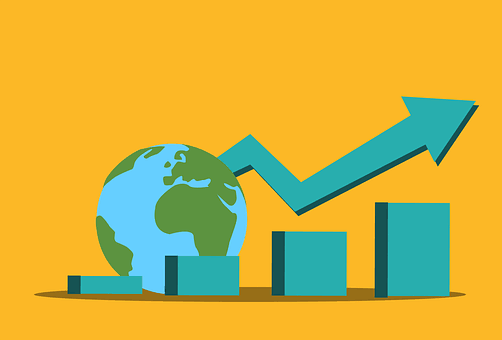In today’s interconnected world, global economic challenges can have far-reaching effects that transcend national boundaries. These challenges can arise from various factors, including political conflicts, technological disruptions, and environmental disasters. Addressing these challenges requires a coordinated effort from governments, international organizations, and private sector actors. In this article, we will examine some of the major economic challenges facing the global community today and explore potential solutions to these challenges.
Income inequality
Income inequality is a major economic challenge facing the world today. The wealth gap between the rich and poor is widening, and this is a concern not only from a moral perspective but also from an economic perspective. When a significant portion of the population cannot afford basic necessities, such as food and housing, it can lead to social unrest and economic instability.
To address income inequality, governments can implement policies that promote more equitable distribution of wealth, such as progressive taxation, minimum wage laws, and social welfare programs. Additionally, companies can pay fair wages, provide employee benefits, and invest in the communities where they operate. Civil society organizations can advocate for policies that reduce inequality and promote economic justice.
Climate change
Climate change is another major economic challenge facing the world today. Rising temperatures, sea level rise, and extreme weather events can have severe economic consequences, such as crop failures, infrastructure damage, and displacement of people.
To address climate change, governments can implement policies that promote renewable energy, energy efficiency, and carbon pricing. Companies can adopt sustainable practices, reduce their carbon footprint, and invest in renewable energy sources. Civil society organizations can advocate for policies that reduce greenhouse gas emissions and support the transition to a low-carbon economy.
Technological disruptions
Technological disruptions, such as automation and artificial intelligence, are transforming the global economy. While these technologies offer many benefits, such as increased productivity and efficiency, they also pose a threat to jobs and can exacerbate income inequality.
To address technological disruptions, governments can implement policies that support workers affected by automation, such as job retraining programs and social safety nets. Companies can invest in the development of new technologies while ensuring that their workers are not left behind. Civil society organizations can advocate for policies that promote a just transition to a technology-driven economy.
Trade tensions
Trade tensions between countries can have significant economic consequences, including increased tariffs, reduced trade, and slower economic growth. These tensions can arise from various factors, such as protectionist policies, intellectual property disputes, and geopolitical conflicts.
To address trade tensions, governments can engage in diplomacy and negotiate trade agreements that promote open and fair trade. Companies can diversify their supply chains and invest in countries that offer favorable business environments. Civil society organizations can advocate for policies that promote free and fair trade and reduce trade barriers.
Pandemic-induced economic crisis
The COVID-19 pandemic has caused a global economic crisis that has affected nearly every aspect of the global economy. The pandemic has led to widespread job losses, business closures, and supply chain disruptions.
To address the pandemic-induced economic crisis, governments can implement policies that support businesses and workers affected by the pandemic, such as stimulus packages, unemployment benefits, and tax breaks. Companies can adapt to the new reality by adopting remote work policies, investing in e-commerce, and developing new business models. Civil society organizations can advocate for policies that prioritize public health while also supporting economic recovery.
Conclusion
Addressing the major economic challenges facing the global community today requires a coordinated effort from governments, international organizations, and private sector actors. Income inequality, climate change, technological disruptions, trade tensions, and the pandemic-induced economic crisis are just a few of the challenges that require urgent action. To address these challenges, governments can implement policies that promote more equitable distribution of wealth, renewable energy, and open and fair trade. Companies can invest in sustainable practices and new technologies while ensuring that their workers are not left behind. Civil society organizations can advocate for policies that promote economic justice, reduce greenhouse gas emissions, and support public health. By working together, we can build a more resilient and sustainable global economy that benefits everyone.
Bibliography
- Piketty, T. (2014). Capital in the twenty-first century. Harvard University Press.
- World Economic Forum. (2021). The Global Risks Report 2021. World Economic Forum.
- United Nations. (2015). Transforming our world: The 2030 Agenda for Sustainable Development. United Nations.
- Stiglitz, J. E. (2012). The price of inequality: How today’s divided society endangers our future. WW Norton & Company.
- Acemoglu, D., & Restrepo, P. (2019). Automation and new tasks: How technology displaces and reinstates labor. Journal of Economic Perspectives, 33(2), 3-30.
- World Trade Organization. (2020). World Trade Statistical Review 2020. World Trade Organization.



 For all latest articles, follow on Google News
For all latest articles, follow on Google News